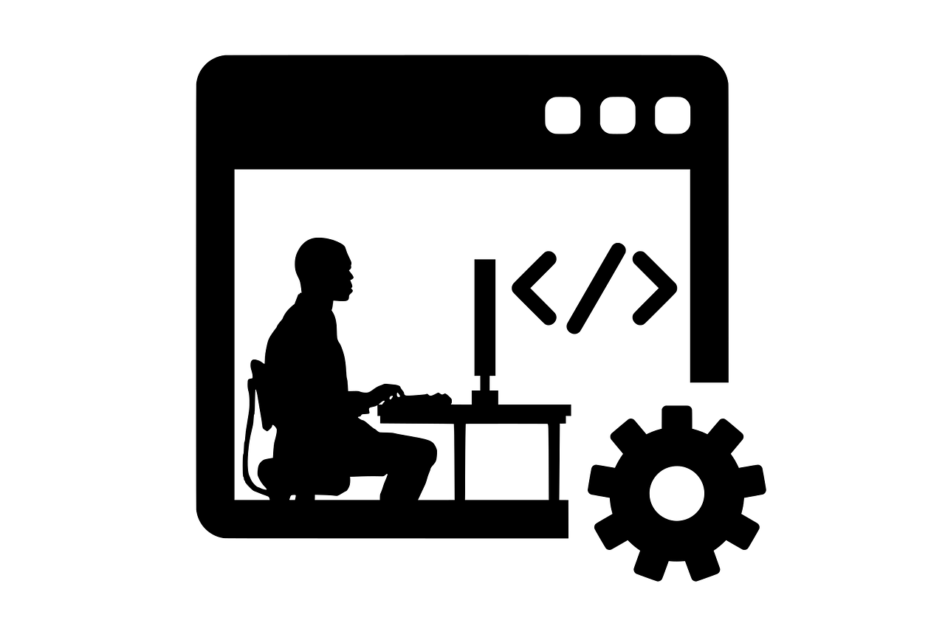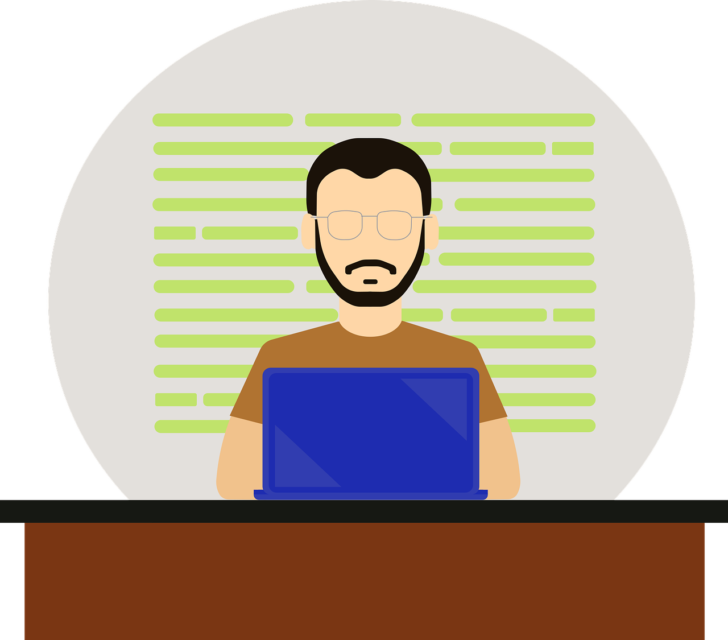JetBrains, the company behind the renowned IntelliJ IDEA IDE, developed Kotlin, a statically typed, open-source programming language.
Kotlin, which is designed to improve on Java, runs on the Java Virtual Machine (JVM) and is fully compatible with Java programs. This implies that you may simply combine Kotlin and Java in your projects, leveraging existing Java libraries and frameworks.
Kotlin was developed with the primary purpose of providing a more concise, expressive and secure alternative to Java while remaining compatible with current Java code bases.
The language was formally unveiled as a first-class programming language for Android app development at Google I/O 2017, and it has since gained appeal among developers and businesses alike.
From developing Android apps and server-side applications to exploiting its multiplatform features to create shared codebases, Kotlin developers are well-positioned for a successful and rewarding career in this growing programming landscape.
Who is a Kotlin developer?
A Kotlin developer is a software engineer who creates and maintains apps using the Kotlin programming language, with a focus on Android app development due to Google’s official support.
Because Kotlin is compatible with Java, these developers often know both languages. Their tasks include writing clean code, troubleshooting, participating in code reviews, collaborating with teams and keeping up with industry trends.
Aside from coding skills, Kotlin developers must understand computer science concepts and software development techniques and be able to handle complex problems.
Essential Skills for a Kotlin Developer

To get started with Kotlin programming and advance your career, you should focus on gaining the following critical skills and knowledge:
Kotlin fundamentals: A thorough understanding of Kotlin syntax, including data classes, sealed classes, type inference, and extension functions, is required.
You should also be fluent in using Kotlin’s basic features, such as lambdas, higher-order functions, null safety, and coroutines for asynchronous programming.
- Android app development: If you’re planning on becoming an Android app developer, having a thorough grasp of the Android development environment, including Android Studio, Android SDK, and Gradle, is vital.
- Understanding the Android app lifecycle, Activities, Fragments, and other libraries will allow you to develop strong and scalable Android apps using Kotlin.
- Server-side development: As a Kotlin developer, knowledge of server-side development, especially frameworks such as Ktor or Spring Boot, is advantageous because it broadens the range of projects you can work on.
- Reactive Framework: Reactive programming has emerged as a key paradigm for designing responsive and robust programs.
Understanding reactive frameworks such as RxJava, RxKotlin, and Kotlin Flow will enable you to build more efficient, responsive Kotlin-based applications.
RESTful APIs: Kotlin developers frequently interface with external services and data sources, therefore, knowledge of RESTful APIs and API design principles is essential.
Testing: Knowledge of testing frameworks such as JUnit, Mockito, and Espresso, as well as the ability to design unit and integration tests, will enable you to construct dependable and maintainable Kotlin apps.
How Can I Become the Best Kotlin Developer?
Here is the definitive checklist for becoming a Kotlin developer.
- You should be proficient in both Kotlin and Java, as these are the only programming languages required to become a Kotlin developer. As a result, you should be able to write these languages in a clear, intelligible, and concise style.
- You must have extensive experience in Android app development because it will serve as the foundation for whatever you study in the future.
- You must also have quick debugging capabilities, problem-solving abilities, analytical skills, and strong
- You should understand how the quality check processes work and have great communication abilities.
- Becoming a Kotlin developer requires hands-on expertise with mobile app architecture, Android SDK, Android Studio, flow, design, and implementation.
- An ideal Kotlin developer should understand agile development ideas and CD/CI pipelines.
- Experience building end-to-end Android mobile apps, including design, programming and deployment to app marketplaces, is also required for the post of Kotlin developer.
- While not required, knowledge of the newest mobile app developments, Android updates and several other developing technologies would be a significant advantage.
- A thorough understanding of the app life cycle, architecture concepts, design fundamentals and other fundamentals is also required for this position.
- Finally, you should be able to understand XML and RESTful APIs to connect the app to backend resources.
Learn Kotlin: Resources and Tools
Being proficient in Kotlin necessitates a combination of resources, tools and constant practice. There are several systems available to help you learn Kotlin successfully. Here are some key resources and tools to get started:
1. Official Kotlin documentation
This is the ultimate guide to Kotlin syntax, principles and best practices, with regular updates from the Kotlin team. Kotlinlang.org provides lessons, code samples and explanations for a variety of Kotlin ideas.
2. Kotlin Koans
Kotlin Koans are a set of exercises that teach you Kotlin features through hands-on activities. This is a fantastic resource for hands-on learning, and the Koans are available at play.kotlinlang.org/koans.
3. JetBrains Academy’s Kotlin Development Track
JetBrains, the originator of Kotlin, provides a comprehensive online learning curriculum for aspiring Kotlin developers. The track offers a variety of projects, quizzes and challenges to help you learn real Kotlin skills. Register at jetbrains.com/academy.
4. Coursera & Udemy
Popular online learning platforms such as Coursera and Udemy provide Kotlin courses ranging from beginner to advanced. These classes often incorporate video lectures, hands-on projects, and teacher support.
5. YouTube Channels
Popular YouTube channels like Android Developers, CodingWithMitch, and freeCodeCamp provide Kotlin tutorials and insights.
6. Blog Posts and Podcasts
Numerous Kotlin developers share their experiences and knowledge via blogs and podcasts, which might provide you with helpful tips and techniques.
Talking Kotlin and Medium publications focusing on Android programming using Kotlin are two good places to start.
7. Stack Overflow and GitHub
Both platforms provide a lot of knowledge and examples, allowing you to work with other developers, ask questions, and solve common Kotlin difficulties.
Remember to use what you’ve learned by working on actual projects and experimenting with Kotlin’s capabilities. This hands-on experience is critical for solidifying your knowledge and becoming a skilled Kotlin developer.
Job Opportunities and Salary Expectations
As Kotlin becomes more popular among developers and organizations throughout the world, the demand for Kotlin developers grows.
Companies from a variety of industries, including banking, healthcare, e-commerce, and technology, are looking for Kotlin developers to create and manage Android and multiplatform applications.
Job titles for Kotlin developers can vary, but some popular ones include:
- Android Developer
- Kotlin Backend Developer
- Full-Stack Developer (Kotlin/Java and frontend technologies)
- Mobile Application Developer
- Kotlin Multiplatform Developer
Kotlin developer salaries range from $70,000 to $120,000 per year, according on experience, job location, industry, and firm size.
More experienced developers, especially those who specialize in specific areas of Kotlin programming, can attract even greater remuneration packages.
When looking for Kotlin development employment, you should explore local market conditions and prices to determine the expected salary range in your area.
Certification and Professional Development
While no formal Kotlin certification is presently available, there are various professional development courses and learning routes accessible to help you improve your Kotlin skills. Some of these alternatives are:
1. JetBrains Academy Kotlin Developer Track
JetBrains, the Kotlin creator, provides a thorough online learning curriculum that covers both fundamental and advanced Kotlin topics. Completing this route allows you to demonstrate your Kotlin competence to potential employers.
2. Google Associate Android Developer
While this certification is not solely focused on Kotlin, it does indicate your ability to develop Android applications in Kotlin and Java.
Given the strong relationship between Kotlin and Android programming, this credential is highly valued in the job market.
3. Coursera
Coursera offers a wide range of online courses and specializations covering all elements of Kotlin and Android development, with some being offered by renowned universities like Stanford and Vanderbilt.
4. Udemy
Udemy offers several Kotlin courses taught by qualified instructors, spanning from beginner classes to more advanced topics and project-based courses.
In addition to courses and certifications, regular attendance at Kotlin and Android development-focused webinars, workshops, meetups, and conferences can help you keep current on industry trends and best practices while increasing your professional network.
Become a Kotlin Expert: Tips & Tricks
Here are some pointers to help you become a Kotlin expert:
1. Consistent practice
Improve your Kotlin skills by coding regularly and working on personal projects. As you progress, try more complex tasks and learn advanced Kotlin concepts.
2. Stay updated on industry trends
Proactively follow Kotlin changes, best practices and insights from industry professionals. Subscribe to Kotlin and Android development-related newsletters, blogs and YouTube channels.
3. Join the Kotlin and Android development communities
Participate in discussions with other developers by using online forums and community platforms like Stack Overflow, Kotlin Slack, and Reddit. In-person meetings and seminars are also excellent networking possibilities.
4. Contribute to open-source projects
You can improve your Kotlin skills by engaging in open-source development. This not only provides hands-on experience but also helps you establish a reputation in the Kotlin community.
5. Share your knowledge
Blogging, contributing to forums, or hosting webinars on Kotlin issues can help you gain a deeper understanding while demonstrating your expertise and earning a reputation in the development community.
6. Use professional classes and resources to continuously improve your Kotlin abilities
These websites might help you stay up-to-date on the latest Kotlin breakthroughs and best practices.
Conclusion
In conclusion, Kotlin’s future appears bright, and its growing popularity gives a plethora of options for developers willing to invest in learning the language and remaining current with industry trends.
By understanding Kotlin principles and exploring cutting-edge technologies, you may establish yourself as an in-demand developer and pursue a successful career in the ever-changing world of software development.
